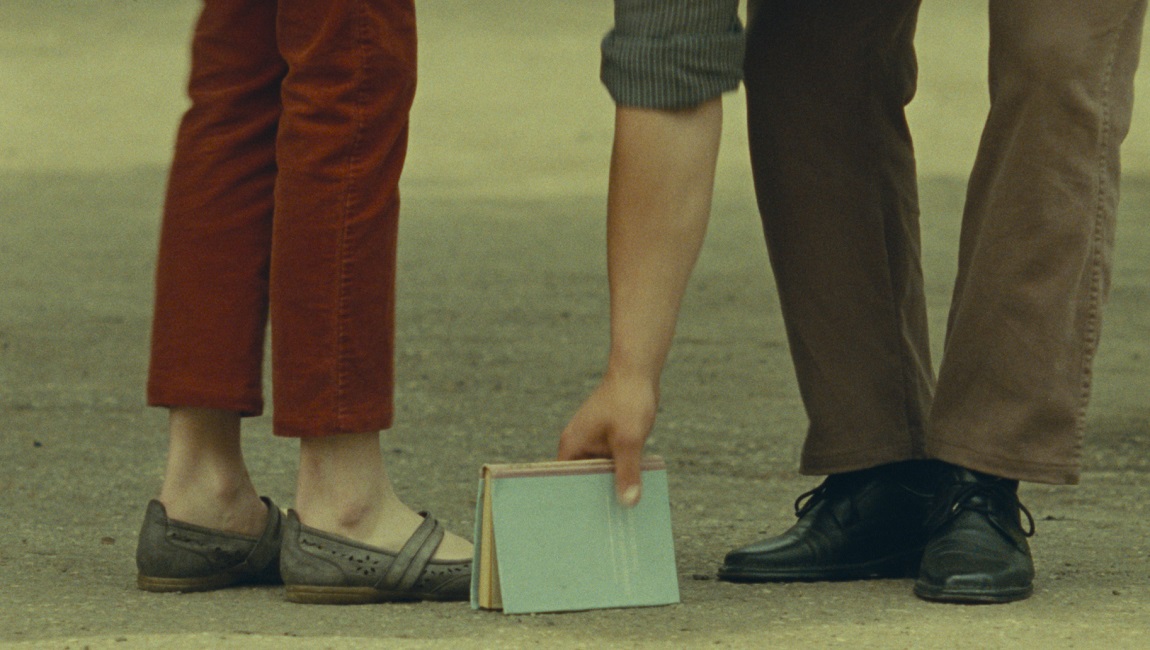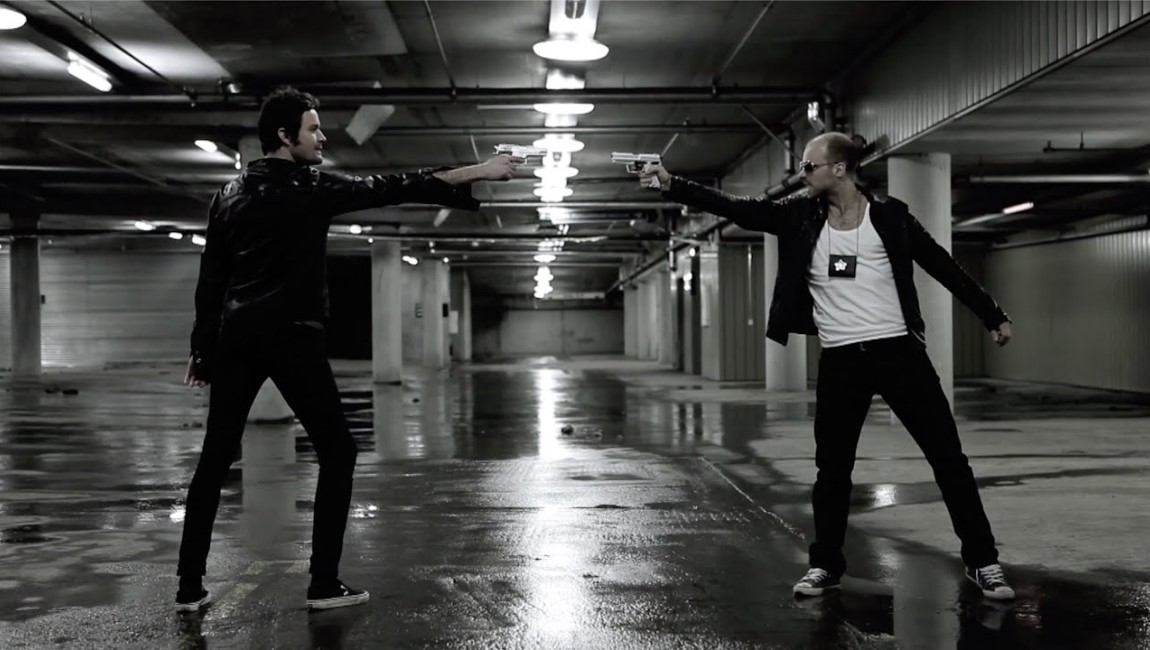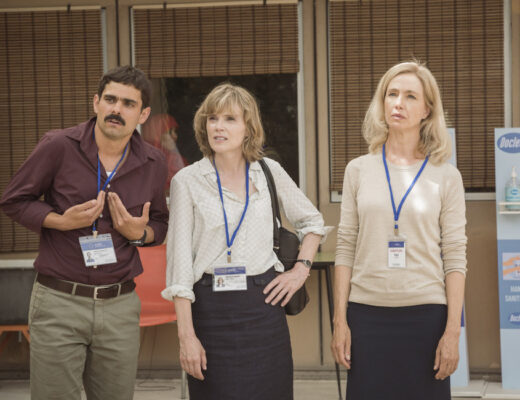#1. For something so ostensibly classical, it still feels like you’re smacking your head against a wall of varying superficial shorthand terms when trying to succinctly categorize Alexandre Koberidze’s What Do We See When We Look at the Sky? “City symphony” fails to account for the minutiae of private routine that governs much of the sprawling narrative, and subsequently, “sprawl” does a disservice to the personal depths of multiple characters — and animals! — that are frequently, lovingly plumbed. The riverside town of Kutaisi, Georgia is made out to be a living entity itself, a far cry from the mechanized rhythms of Dziga Vertov, which rightfully places humans as the arbiters of a metropolis’ day-to-day. What Do We See When We Look at the Sky? is a casual fairytale, one which dispenses with its flight of the fantastical in just a matter of minutes. Lisa, a pharmacist, and Giorgi, a soccer player, experience an elongated meet-cute — they bump into each other, realize they’re going the wrong way, bump again — and plan to meet the next day, but suffer a curse that the inanimate objects of an intersection do their best to stave off. The next day, their appearances have entirely changed.
Unable to communicate, much less recognize each other at their agreed rendezvous, we anticipate an inevitable recoupling, a spirited rush into each other’s arms; instead, the digressions proliferate. The curse has also robbed them of their respective fields — a simple little gag sees Giorgi, now played by Giorgi Bochorishvili, once confident in his soccer abilities, repeatedly fail to kick a ball over a fence — and thus, they must each find new ways to make their respective livings. Lisa (as now played by Ani Karseladze), introduces the prevailing element of dramatic irony, beginning work as the attendant of the ice cream machine at the outdoor cafe where she and Giorgi were supposed to meet, and he’s not too far behind, acting as the (mostly straight-faced and respectful) barker for the various, low-risk competitions the owner has put together, such as hanging on a chin-up bar for a whole two minutes, or later, eating a certain amount of cookies within the same temporal restraint.
Giorgi and Lisa are quick to inhabit their new roles, to the point where Koberidze clearly feels safe in leaving them to do their jobs for extended periods of time while he turns his sights elsewhere. There’s a lot happening in Kutaisi, lots to see and hear: it’s the World Cup, documentaries are being made, kids are painting Messi’s jersey number on their bare backs with green paint. Koberidze, as narrator, is the omniscient force that directs our focuses, and in doing so, he hits upon a veritable new cinema, contemporary silent work, without actually sacrificing sound. It’s a paradoxical combination, but then, how else can you describe the ubiquitous diegetic sound which includes nearly everything except dialogue? The towering Bochorishvili plays with the affecting blankness of Keaton and the clumsy physicality of Chaplin; Karseladze allows for her subtlest facial inflections to elevate her from the throes of uncertainty to this newfound, inviting pattern of unhurriedness. Germs of Griffith, Dwan, Vidor, Pabst are all detectable, but Koberidze’s resulting cinema is all his own, unveiling the hidden richness of city living with little more than some soccer and some dogs. It’s a film that deserves to be shared with any and everyone, but also rightfully begs you not to spoil any of its innumerable, memorable surprises.







